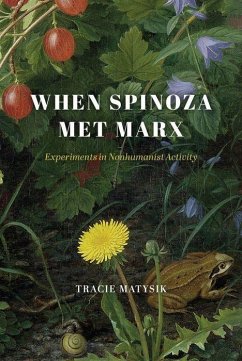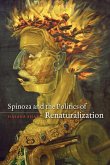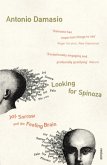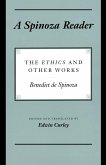"How did Baruch Spinoza, the seventeenth-century Dutch-Jewish philosopher, become a nineteenth-century German Marxist? It is on its face an unlikely development. Karl Marx was a fiery revolutionary theorist who heralded the imminent demise of capitalism, while Spinoza was a contemplative philosopher who preached rational understanding and voiced skepticism about open rebellion. Further, Spinoza criticized all teleological ideas as anthropomorphic fantasies, while Marxism came to be associated expressly with teleological historical development. Yet socialists of the German nineteenth century were consistently drawn to Spinoza as their philosophical guide. Tracie Matysik shows how the metaphorical meeting of Spinoza and Marx arose out of an intellectual conundrum about the meaning of activity. How is it, exactly, that humans can be fully determined creatures - creatures in nature and governed by causal laws of nature - and also able to change their world? To address this seeming paradox, many revolutionary theorists scrapped the idea of activity as something autonomous humans do when they assert themselves against nature and its causal laws. Thinking with Spinoza, they came to think of activity instead as relating - as the state of relations between humans and between humans and the non-human world. Matysik follows these Spinozist-socialist intellectual experiments in the meaning of activity that unfolded across the nineteenth century, drawing lessons from them that may be meaningful for the environmental-justice issues confronting the contemporary world"--
Hinweis: Dieser Artikel kann nur an eine deutsche Lieferadresse ausgeliefert werden.
Hinweis: Dieser Artikel kann nur an eine deutsche Lieferadresse ausgeliefert werden.








